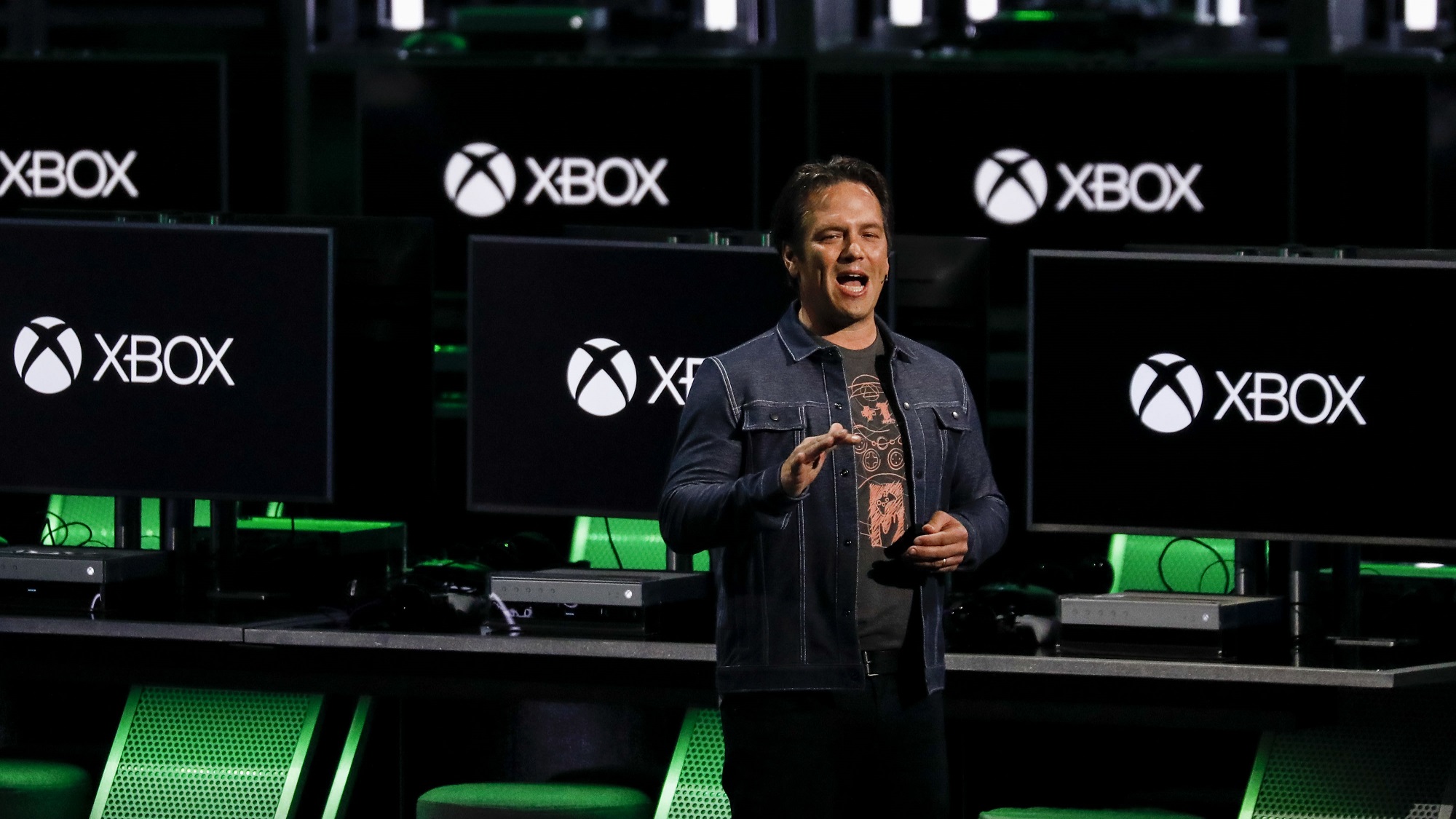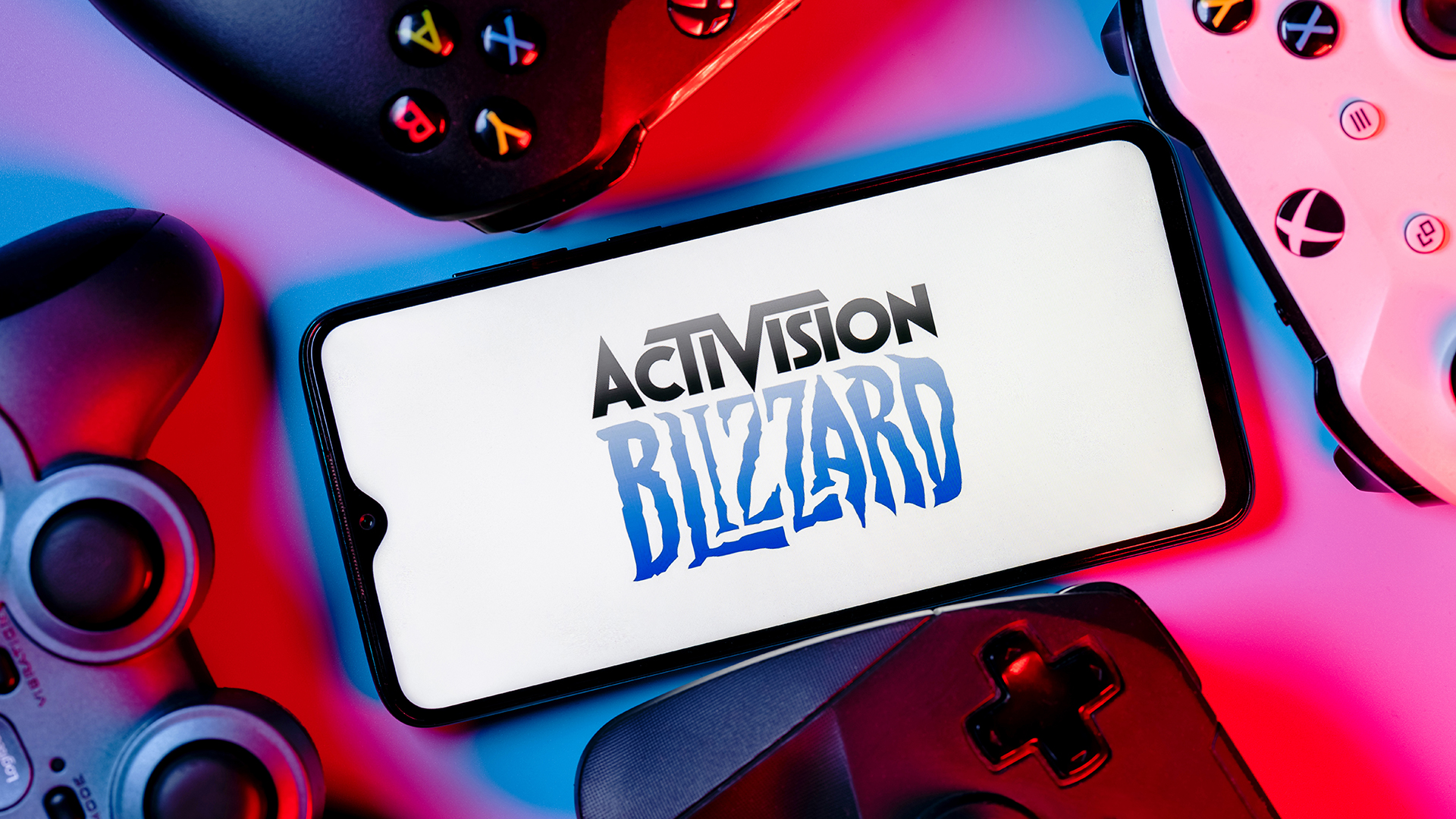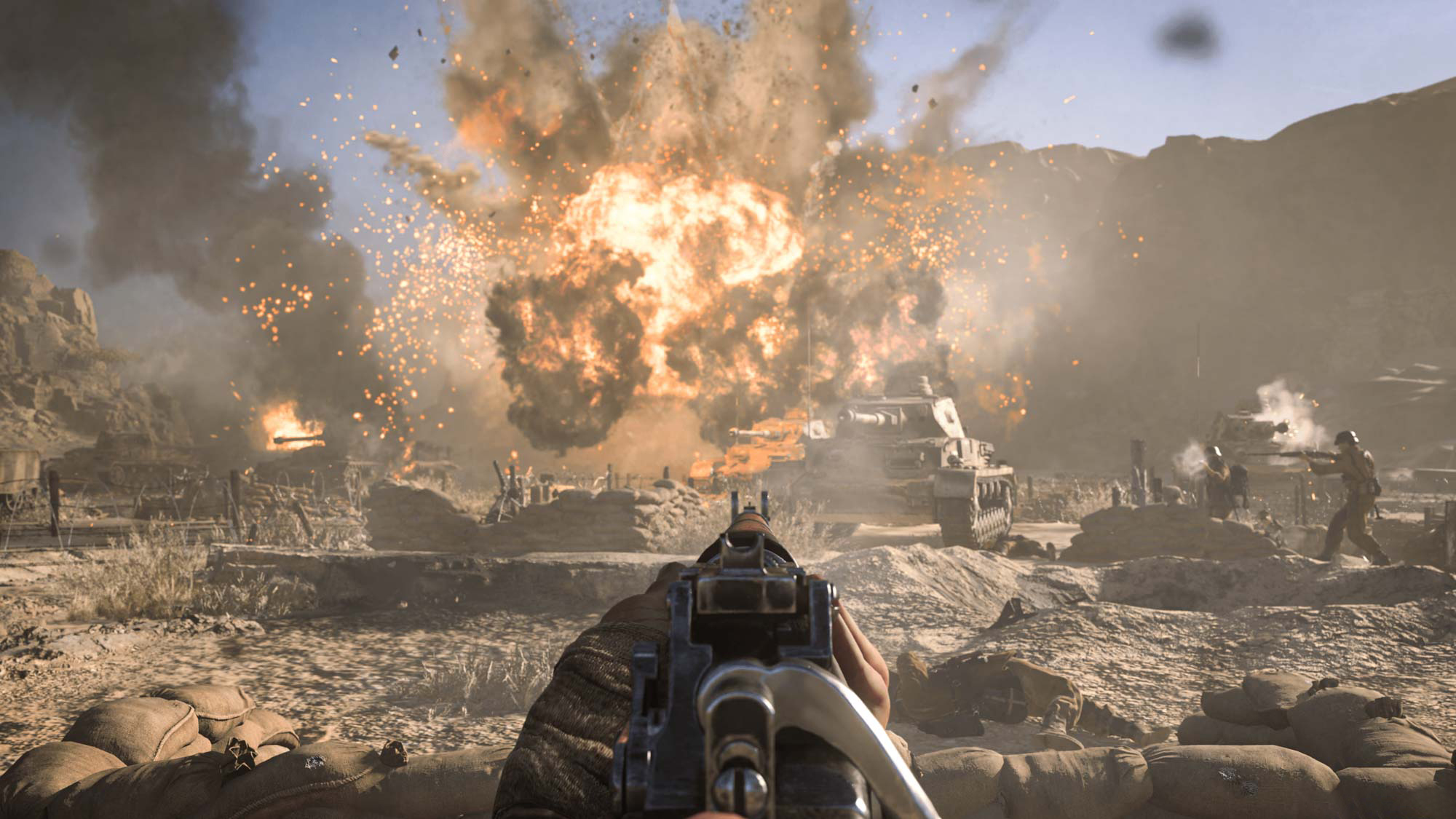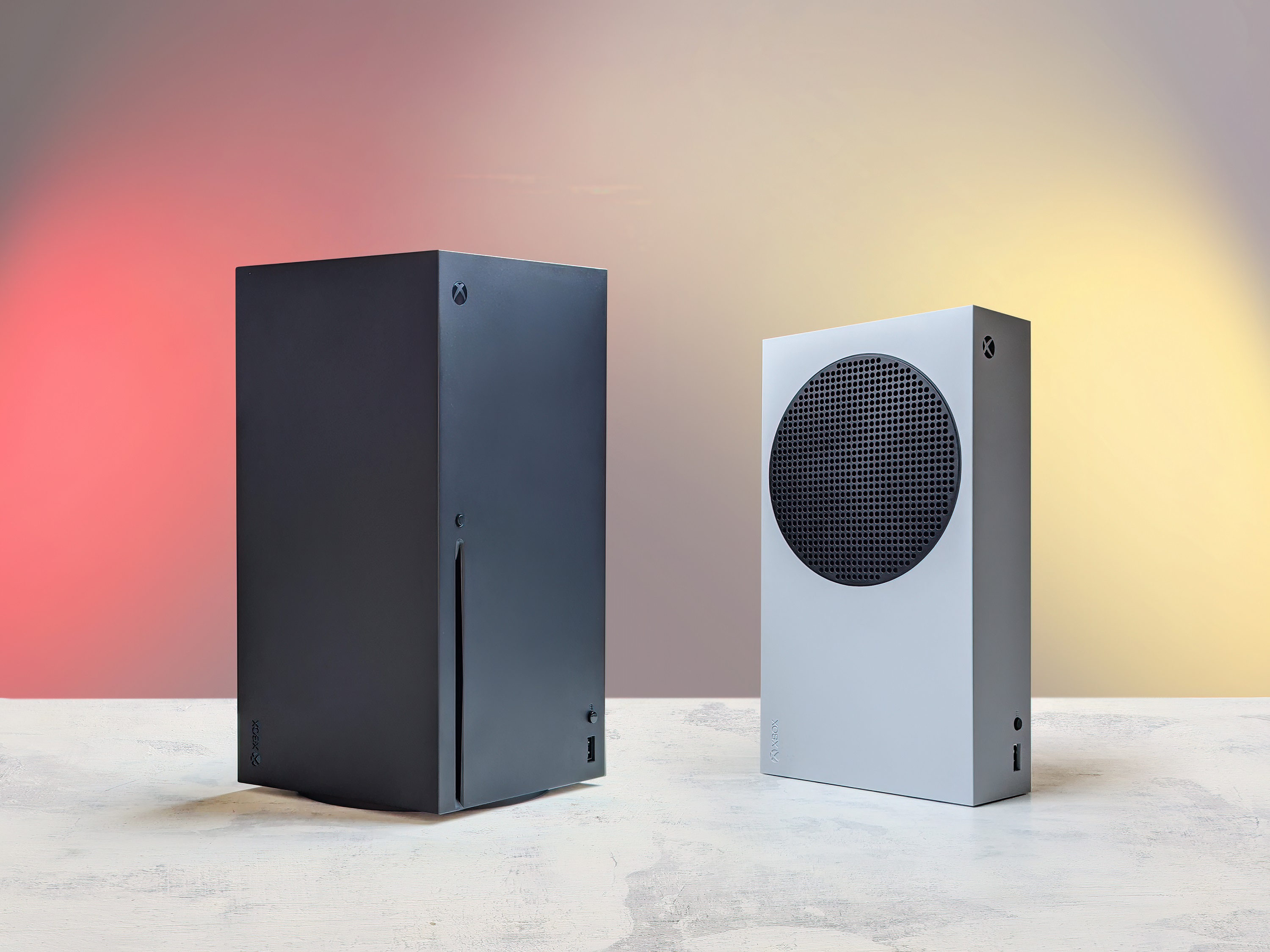
Update: We ponder the question of what does Microsoft’s Activision acquisition mean for gamers?
Earlier this week, Microsoft announced its acquisition of Activision Blizzard, the massive video game publisher responsible for Call of Duty, World of Warcraft, Candy Crush and many other beloved franchises. At $68.7 billion, it's the largest acquisition in tech history, beating out the $67 billion Dell-EMC deal from back in 2016.
This is on top of Microsoft’s $7.5 billion acquisition of ZeniMax Media back in 2020, which brought in The Elder Scrolls and Fallout, as well as its purchase of Minecraft for $2.5 billion back in 2014. Microsoft’s recent spending spree has completely upended the video game market, which could put Xbox Game Pass, the company’s game subscription service, in a position to shift game plans for both Sony and Nintendo. Not only that, there could be a larger metaverse play afoot.
Some video game fans may see Microsoft’s shrewd purchasing moves as desperation. The Xbox brand has never been able to amass the same library or cachet as Sony or Nintendo. As iconic as Master Chief is, he’s no Mario, Link or Nathan Drake. Sony and Nintendo slowly grew their portfolios of studios by investing in teams one by one, developing relationships and integrating external teams into their overarching umbrellas.
Microsoft, on the other hand, seems to have simply pulled out its checkbook and bought the biggest players in video game publishing. It’s the equivalent of the rich kid showing up to the go-kart race and winning because he bought the best pre-made parts.
The real challenge to all three major gaming companies is Roblox and online gaming, and to be honest, only Microsoft seems to realize this.
Dr. Aswath Damodaran, NYU
According to Dr. Aswath Damodaran, professor of finance from NYU’s Stern School of Business in an email to Tom’s Guide, Microsoft’s acquisition isn't about raising Call of Duty prices, or forcing Sony and Nintendo out of the market. In reality, as big as Xbox is, it’s still "penny change" compared to Microsoft as a whole. For Damodaran, Microsoft has another major player in its sights.
"Technology markets are constantly changing and evolving, and getting a controlling market share against existing players gives you almost no advantage against newcomers and disruption," said Damodaran. "The real challenge to all three major gaming companies is Roblox and online gaming, and to be honest, only Microsoft seems to realize this. Sony is a dead man walking (in corporate life cycle parlance) and Nintendo is run by managers who are so old (or at least act old) that they have no connection to the people who use their systems."
Sign up to get the BEST of Tom's Guide direct to your inbox.
Get instant access to breaking news, the hottest reviews, great deals and helpful tips.
If Damodaran’s take is true, then newly appointed Microsoft Gaming CEO Phil Spencer may be looking far beyond Xbox Series X versus PS5 unit sales. Instead, he may be considering the future of the games industry itself. New startups and metaverse pushes could threaten to unravel that future.
Microsoft swooped in at the perfect time

It’s also ideal timing for Microsoft to swoop in. Activision Blizzard has been caught in major regulatory labor controversy, linked to a crude company culture that led to widespread harassment, pay disparity and even a suicide.
"Acquiring Activision will help jump start MSFT's broader gaming endeavors and ultimately its move into the metaverse with gaming the first monetization piece of the metaverse in our opinion," said managing director of equity research Dan Ives in a note published by Wedbush Securities. "With Activision's stock under heavy pressure (CEO related issues/overhang) over the last few months, MSFT viewed this as the window of opportunity to acquire a unique asset that can propel its consumer strategy forward."
Microsoft has been laying low on the regulatory front, whereas Amazon, Apple and Google have seen increased scrutiny from lawmakers over antitrust actions.
According to Ives, Microsoft has been laying low on the regulatory front, whereas Amazon, Apple and Google have seen increased scrutiny from lawmakers over antitrust actions. Per Ives, if any of the above companies tried to make a similar acquisition, it would lead to immediate pushback by government agencies. Microsoft CEO Satya Nadella saw an opening and struck.
Still, Microsoft’s acquisition is surely raising eyebrows among regulators at the Federal Trade Commission (FTC) and the Department of Justice (DOJ). American media markets have already seen major consolidation, most notably with Disney’s acquisition of Marvel and Fox, giving the house of Mickey a major franchise advantage over the likes of Netflix and HBO. FTC Chair Lina Khan has already said the agency is going to make "rampant acquisition" a top priority for the agency.
"Given the ongoing merger surge, there is a real risk that markets will become only more consolidated absent our vigilance and assertive posture," Khan wrote in a memo.
Before, the FTC would look only at end-consumer benefit in regards to acquisition. If steel companies being consolidated meant lower prices for consumers, then the FTC would not see a problem. But big tech has been increasingly aggressive in buying up not only major players, but also smaller ones before they have a chance to compete. This practice gives outsized power to top players such as Google, Meta and Microsoft.
Many of these smaller acquisitions can fall under regulators' radars. According to Khan’s memo, the FTC will take a "holistic approach" in "identifying harms, recognizing that antitrust and consumer protection violations harm workers and independent businesses as well as consumers."
Already, government officials and regulators have subjected Facebook’s acquisition of WhatsApp and Instagram a few years back to increased scrutiny. This increased attention is directly linked to Meta’s expanded online scope around the world, ringing alarm bells within government agencies and human rights activists.
Right now, Meta is up against 48 antitrust lawsuits that aim to break up its various entities. Officials have accused Meta of integrating its acquired services too deeply, creating an illegal monopoly and engaging in anti-competitive behavior.
"Regulators could be concerned with Msft/Xbox becoming too dominant and if combined Co will take the IP exclusively to Xbox (which would lower the potential future rev) or some sort of hybrid implementation depending on the franchise," said Joel Kulina, head of technology and media trading and Wedbush Securities in an email interview with Tom’s Guide. Kulina went on to say that "picking up Activision would further strengthen Game Pass and get Microsoft much closer to Sony (SONY has won console wars in recent memory due to much stronger first-party content)."
It's all about the metaverse
Kulina also said that cloud and mobile gaming are the future and Microsoft’s Activision Blizzard acquisition strengthens its position in the metaverse immediately.
Gaming companies such as Epic Games already have a distinct advantage over Meta and its Oculus platform, thanks to years of game development. And considering that the metaverse is supposed to be a persistent online interactive ecosystem, decades of graphics development and online gameplay infrastructure give gaming companies a leg up.
This would be a significant deal in making them Microsoft a bigger player in the metaverse
Joel Kulina, Wedbush Securities
"This would be a significant deal in making them [Microsoft] a bigger player in the metaverse. Which is still a theme clouded in hype but a lot of big companies are throwing a lot of money at it," said Kulina. "So going after RBLX 100% is an angle."
Kulina believes that both Sony and Nintendo will buttress its development to compete against Microsoft in this regard. Not only that, Kulina expects that Epic Games, Electronic Arts, CD Projekt, Ubisoft and Take-Two Interactive will also be looking for "dance partners." If Apple, Meta and Alphabet see Microsoft’s bullishness as a major threat in the metaverse play, then all three could become "willing buyers."
Could Disney buy Nintendo?
While it may seem absurd for Disney to acquire Nintendo, for example, or Alphabet to take up Sony, the justification of Fox’s $52 billion sale to Disney was that Fox could not compete with the likes of Netflix and Amazon. Those two companies in a span of two decades were able to amass a Scrooge McDuck-level of cash, and Fox chairman Rupert Murdoch felt that his company alone could not compete against them. It’s likely that MGM felt the same way when it sold itself to Amazon for $8.45 billion last year. And it’s why Quibi’s near-$2 billion bank account was too small to really compete against other streaming players.
Already, antitrust lawyers feel that regulators will force Microsoft to change the terms of its acquisition.
"There can be divestiture or other requests made by such regulatory agencies that make the deal look a bit different from what was announced today," said Richard Hoeg, a business attorney and YouTuber in an interview with GameSpot.
Call of Duty exclusivity on Xbox and PC still uncertain
A deal of this magnitude will likely also bring in international regulators who are interested in ensuring fair competition. At the moment, it’s still too early to say if all Activision Blizzard properties will become exclusive to Xbox and PC.

"Activision Blizzard games are enjoyed on a variety of platforms and we plan to continue to support those communities moving forward," said Microsoft Gaming CEO Phil Spencer in a press release. Of course, this seems to vary on a case-by-case basis. Whereas Minecraft is available across multiple platforms, the upcoming Bethesda title Starfield will be an Xbox and PC exclusive. And with Blizzard's announcement of a new survival game, that too will likely become an Xbox and PC-only title.
In a later interview with Bloomberg, Spencer did say "to players out there who are playing Activision Blizzard games on Sony’s platform: It’s not our intent to pull communities away from that platform and we [remain] committed to that." Of course, that commitment could change at a moment’s notice.
PS5 vs. Xbox Series X unit sales don't matter anymore, only dominance
Now that gaming has entered the subscription service model, winners are defined not only by quality of content, but by quantity as well. That constant pull could mean increased prices for consumers. Netflix recently hiked prices, and it wouldn’t be too surprising if Disney Plus and HBO Max follow suit.

Xbox Game Pass remains the best deal in gaming, but throwing up each new Call of Duty on the service could potentially add costs to Xbox’s bottom line. Given Sony and Nintendo’s smaller portfolios, it’s unlikely that any subscription model from either company could offer the same value incentive, even as rumors suggest Sony is working on a Game Pass competitor codenamed Spartacus. Nintendo also currently offers a slew of classic titles with its online service, although the selection leaves a lot to be desired. Whether consumers decide to purchase games individually or opt for Xbox Game Pass, it could force Nintendo and Sony to adapt accordingly.
In the early '90s, Sony suggested to Nintendo that both companies join forces to create one massive gaming company. Nintendo ultimately walked back on the deal, pushing Sony to go its own way. Given the recent shakeups at Microsoft, both Sony and Nintendo may be looking at new partners to stay afloat. Who knows? That Nintendo PlayStation might eventually become a thing.
Imad is currently Senior Google and Internet Culture reporter for CNET, but until recently was News Editor at Tom's Guide. Hailing from Texas, Imad started his journalism career in 2013 and has amassed bylines with the New York Times, the Washington Post, ESPN, Wired and Men's Health Magazine, among others. Outside of work, you can find him sitting blankly in front of a Word document trying desperately to write the first pages of a new book.

